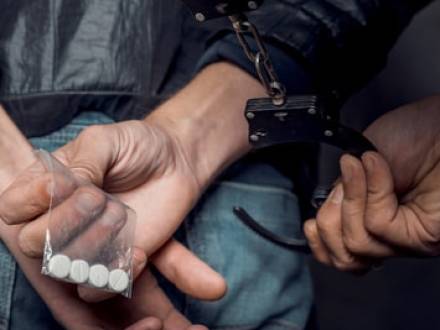The Differences Between State and Federal Drug Charges
 Illinois is one of only 18 states that makes possession of drugs (except marijuana or ten grams or less of other drugs) a felony in most cases. This results in even relatively small amounts of drugs, resulting in serious involvement with the legal system. Despite the fact that the Illinois Controlled Substances Act states that it is not the intent to treat the unlawful user or occasional petty distributor with the same severity as large-scale drug traffickers, in practice, this is exactly what happens.
Illinois is one of only 18 states that makes possession of drugs (except marijuana or ten grams or less of other drugs) a felony in most cases. This results in even relatively small amounts of drugs, resulting in serious involvement with the legal system. Despite the fact that the Illinois Controlled Substances Act states that it is not the intent to treat the unlawful user or occasional petty distributor with the same severity as large-scale drug traffickers, in practice, this is exactly what happens.
Even though Illinois drug crime laws are harsh, in many cases, federal drug laws and punishments are even harsher. An individual arrested on federal drug charges is more likely to be prosecuted and more likely to be convicted (Federal drug charges have a conviction rate of 76 percent and an incarceration rate of 55 percent). If you are facing state drug charges, you need a highly experienced Naperville, IL criminal defense attorney as quickly as possible to minimize the long-term effects.
When Do Drug Crimes Become Federal?
Federal courts have jurisdiction over drug crimes committed on federal property, drug crimes that involve a federal agency, and drug trafficking across state lines. The DEA and FBI are the agencies that typically investigate and make federal drug arrests. State courts have jurisdiction over crimes committed within their territorial boundaries.
Even when a drug crime is not committed on federal property, does not cross a state line, and does not involve a federal agency, large amounts of drugs or a large-scale drug trafficking conspiracy may be charged federally. Further, while possession of marijuana is a federal crime, individual states can legalize the drug. In the case of marijuana possession in a state where it is legal, federal charges would be rare.
In some cases, state and federal agencies will collaborate, resulting in charges in both state and federal courts. Federal authorities can also choose to take over a case that began as a state case, charging the defendant under federal laws with harsher consequences. While most drug arrests at the state level are for possession, the majority of drug arrests at the federal level involve drug trafficking.
Penalties Between State and Federal Drug Charges
Federal courts have stricter guidelines and a higher burden of proof than state courts. While state courts are more likely to focus on the facts and circumstances of an individual case, federal cases are less likely to consider individual circumstances and have mandatory minimums for many drug offenses, along with harsher penalties for repeat offenders. Federal penalties will typically include long-term imprisonment and hefty fines, especially for trafficking across state lines or large-scale operations.
For example, possession of up to 30 grams of a controlled substance in the state of Illinois is a Class 4 felony, punishable by one to three years in prison and fines as large as $25,000. Federal penalties for possession will depend on the "Schedule" of the drug, but prison time can range from one year to life, fines can range from $1,000 to $4 million for first offenses, and federal penalties can include property forfeiture, forfeiture of federal benefits, and a denial for a professional license.
Contact a DuPage County, IL Drug Crimes Lawyer
If you are facing drug crime charges – whether federal or state – you must take these charges very seriously. The most important step you can take in this situation is to hire a highly skilled Naperville, IL drug crimes attorney from Appelman Law LLC. Our firm provides the highest quality legal defense to each and every client. Attorney Appelman has a master’s degree in forensic psychology in addition to his law degree. Call 630-717-7801 to schedule your free consultation.





